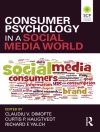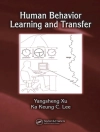This handbook helps professionals working with adults with intellectual disabilities to establish the needs of individuals through systematic assessment and to monitor and evaluate the effectiveness of the service they provide.
- A comprehensive handbook for professionals working with adults with intellectual disabilities.
- Enables these professionals to establish the needs of individuals
- Helps them to monitor and evaluate the effectiveness of the service they provide.
- Expert contributions include conceptual chapters and descriptions of selected assessment instruments.
- Covers the full spectrum of need, including adults with mental health difficulties, behavioural problems, forensic needs and assessment of people with profound intellectual and multiple disabilities, and those suspected of developing dementia.
Tabella dei contenuti
Introduction: Assesssment in Perspective (James Hogg and Arturo Langa).
PART I: CONCEPTUAL ISSUES IN ASSESSMENT .
Chapter 1: Issues in the Systematic Assessment of Quality of Life (Robert A. Cummins).
Chapter 2: Outside the Box: Assessment for Life and Work in the Community (Patricia Noonan Walsh).
Chapter 3: Interdisciplinary Assessment of People with Profound Intellectual and Multiple Disabilities (Carla Vlaskamp).
Chapter 4: The Assessment of Mental Illness in Individuals with Intellectual Disabilities (Edwin J. Mikkelsen, Lauren R. Charlot and Arturo Langa).
Chapter 5: Issues in the Assessment of Challenging Behaviour (Eric Emerson).
Chapter 6: People with Intellectual Disabilities Who Offend or Are Alleged to Have Offended (Gillian Anderson).
Chapter 7: The Assessment of Dementia in People with Intellectual Disabilites Context, Strategy and Methods (Chris Oliver and Sunny Kalsy).
Chapter 8: Genetic Syndromes and Behavioural Phenotypes (Robert M. Walley).
PART II: STRATEGIES AND INSTRUMENTS.
Chapter 9: Instruments Assessing Quality of Life (Robert A. Cummins).
Chapter 10: Assessment and Employment of People with Intellectual Disabilites (Patricia Noonan Walsh).
Chapter 11: Assessing People with Profound Intellectual and Multiple Disabilites (Carla Vlaskamp).
Chapter 12: Commonly Employed Psychopathology Instruments for Individuals with Intellectual Disabilities (Lauren R. Charlot and Edwin J, Mikkelsen).
Chapter 13: Instruments for Assessing Behavioural Problems (Kirk Zimbelman).
Chapter 14: People with Intellectual Disabilities Who Offend or Are at Risk of Offending: Assessing Need and Risk (Gillian Anderson).
Chapter 15: The Assessment of Dementia in People with Intellectual Disabilities Key Assessment Instruments (Sunny Kalsy and Chris Oliver).
Chapter 16: Behavioural Phenotypes: Approaches to Assessment (Robert M. Walley).
Index.
Circa l’autore
James Hogg is Director of the White Top Research Unit, University of Dundee and Research Professor.
Arturo Langa is a Consultant Psychiatrist and Lead Clinician working for Lanarkshire Primary Care Trust, and Senior Honorary Lecturer at the University of Dundee.












